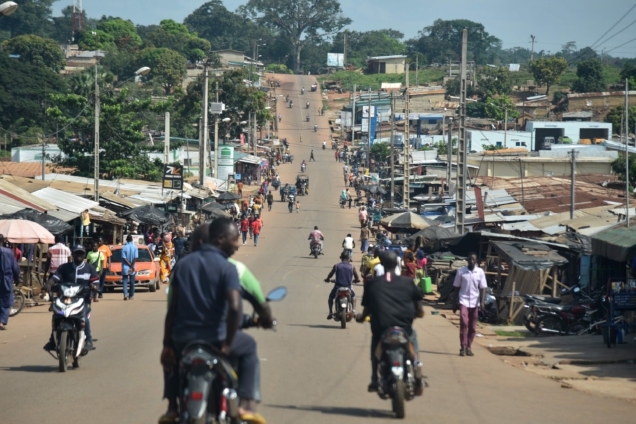
Audio By Carbonatix
UNHCR, the UN Refugee Agency is concerned as electoral tension and unrest in Côte d’Ivoire has caused several thousands of refugees to flee into neighboring countries.
Violent clashes erupted after the presidential election that was held on 31 October leaving at least a dozen dead and many more injured, according to the latest reports.
As of 2 November, more than 3,200 Ivorian refugees had arrived in Liberia, Ghana and Togo. Most of the arrivals are women and children from Côte d’Ivoire’s west and southwest regions.
The newly arrived include former Ivorian refugees who had recently repatriated and were forced to flee once again. Many report fears of getting caught up in the escalating violence.
In Liberia, where more than 2,600 refugees have arrived through several entry points along the common border with Côte d’Ivoire, including some 1,000 who arrived in the last day alone.
Local communities are hosting the new arrivals and sharing their limited resources and shelter.
UNHCR is working with Liberian authorities to register the new arrivals and provide food. We are deploying additional staff to boost our aid response and monitoring activities.
Some 600 Ivorian refugees also arrived in Ghana. More than half came from Niable, an Ivorian town less than five kilometers from the Ghanaian border.
They expressed their intention to stay close to the border to quickly return after the violence subsides. As of Monday 2 November, 289 Ivorians chose to return back to Niable upon hearing from family that calm had returned there.
The majority of those who chose to stay are now living in Ampain refugee camp, nearly 60 kilometers from the border. UNHCR has dispatched additional tents and is assessing the needs of vulnerable new arrivals.
UNHCR thanks the governments of Liberia, Ghana, and Togo for keeping their borders open to Ivorian refugees despite restrictions linked to the COVID-19 pandemic.
We continue to work closely with governments and other partners in the region on contingency plans should refugee movements from Cote d’Ivoire accelerate.
The election has triggered violence not seen in the country since 2011, when another disputed presidential election claimed the lives of more than 3,000 Ivorians, forced more than 300,000 to flee across the region, and displaced more than one million inside the country.
UNHCR calls on Ivorian political and opinion leaders to refrain from inciting violence, resorting to hate speech, and to resolve any disputes peacefully and through dialogue.
Latest Stories
-
Ghana is rising again – Mahama declares
2 hours -
Firefighters subdue blaze at Accra’s Tudu, officials warn of busy fire season ahead
2 hours -
New Year’s Luv FM Family Party in the park ends in grand style at Rattray park
2 hours -
Mahama targets digital schools, universal healthcare, and food self-sufficiency in 2026
2 hours -
Ghana’s global image boosted by our world-acclaimed reset agenda – Mahama
3 hours -
Full text: Mahama’s New Year message to the nation
3 hours -
The foundation is laid; now we accelerate and expand in 2026 – Mahama
3 hours -
There is no NPP, CPP nor NDC Ghana, only one Ghana – Mahama
3 hours -
Eduwatch praises education financing gains but warns delays, teacher gaps could derail reforms
3 hours -
Kusaal Wikimedians take local language online in 14-day digital campaign
4 hours -
Stop interfering in each other’s roles – Bole-Bamboi MP appeals to traditional rulers for peace
4 hours -
Playback: President Mahama addressed the nation in New Year message
5 hours -
Industrial and Commercial Workers’ Union call for strong work ethics, economic participation in 2026 new year message
7 hours -
Crossover Joy: Churches in Ghana welcome 2026 with fire and faith
7 hours -
Traffic chaos on Accra–Kumasi Highway leaves hundreds stranded as diversions gridlock
7 hours

